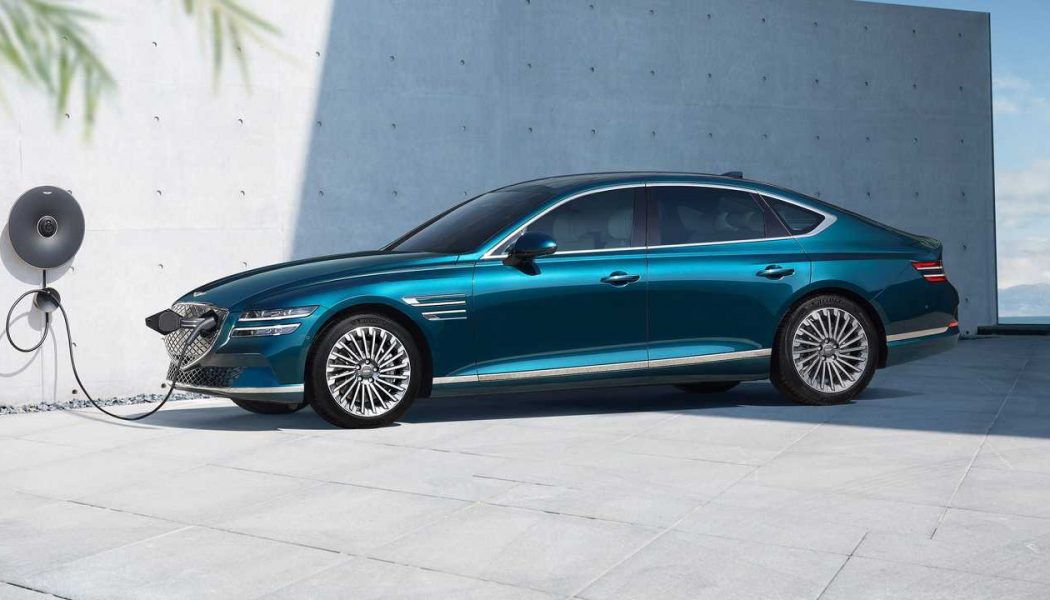Genesis makes its electric vehicle plans official with the appearance of the Electrified G80 at the Shanghai Auto Show. We expect the EV model to show up on our shores within the next year or two, as well, given the brand claims the Electrified G80 is a global vehicle.
The parent company of Genesis, Hyundai Motor Company, has big EV plans for each of its brands (Hyundai, Kia, and Genesis). Hyundai is grouping its offerings into the Ioniq sub-brand, starting with the Ioniq 5, while Kia recently unveiled the EV6.
Genesis, meanwhile, previously dabbled in the EV space by way of its concept cars, the latest of which is X Concept, an electric two-door grand touring car. The Electrified G80, however, marks the luxury brand’s first production EV model. The battery-powered luxury sedan looks almost exactly as one might expect: like a conventional G80 with a charging port hidden behind a panel located within the brand’s signature grille design that has been tweaked a little.
The Electrified G80 comes standard with all-wheel drive and promises a range of more than 310 miles on a full charge of its battery pack. Admittedly, that sum is likely calculated on a more liberal testing cycle and not the EPA’s more conservative one. We will not be surprised if the Electrified G80’s EPA-rated range falls below 300 miles. According to Genesis, the Electrified G80 can reach 80 percent charge capacity in 22 minutes and accelerate to 60 mph in 4.9 seconds. That’s 0.3 second quicker than what we achieved from an all-wheel-drive 375-hp Genesis G80 3.5T.
Things look much the same inside the Electrified G80 relative to its gas counterpart. That said, Genesis notes the car’s insides use more recycled materials, and we’re sure the digital gauges are specific to the EV model. A solar panel in the roof can generate electricity using sunlight.
Although we await official word from Genesis of the Electrified G80’s U.S. prospects, we wager the model will sport a sticker price a little above that of the AWD-equipped G80 3.5T, which starts at $63,295. This ought to make it noticeably cheaper than something like the Tesla Model S, which currently costs a minimum of $81,190 to get into.










